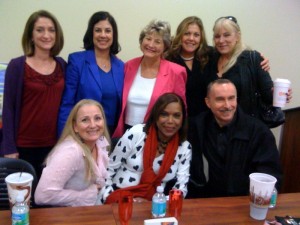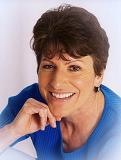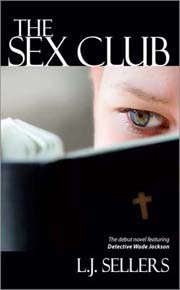By: Kathleen Pickering
I have seen three TV shows in the past week where characters mentioned Facebook. This fact cements in my mind that Facebook as a media tool is here to stay. So, my question is: Are you still not on Facebook?
If you’re like my mother, you are not, and never will be, on Facebook. (That’s a story for another time.) However, if you are a curious planet dweller with a story to tell, Facebook is a phenomenon not to be missed. It is the perfect tool for authors or artist of any sort. The ability to reach millions of people for free, and as personably as humanly possible on the Internet, creates an outrageous boon every author needs: Contacts! Lots of ‘em!
 Author friends and fellow Facebook Buddies. Top L to R: Allison Chase, Nancy Cohen, Linda Conrad, Kathleen Pickering, Heather Graham. Bottom L to R: Traci Hall, Marcia King Gamble, Michael Meeske.
Author friends and fellow Facebook Buddies. Top L to R: Allison Chase, Nancy Cohen, Linda Conrad, Kathleen Pickering, Heather Graham. Bottom L to R: Traci Hall, Marcia King Gamble, Michael Meeske.
For those of us on Facebook, here are some quick tips I have learned to enhance your “Tribe” of friends:
For making friends:
When you offer and/or accept friend requests always add a note to the request, i.e., “Thank you for the friendship. Feel free to visit me at http://….” (or mention the topic that connects you as friends.)
Create Groups:
Build a tribe of your own with chat groups to discuss items relating to your business or areas of interests shared on Facebook. Go to your Message section and click on the “Groups” tab on the RH side. Then, click “Create Group” on the top. Send the group invitation to everyone on your Friends List. Be consistent with your Tribe with regular contact. Use your Group/ Tribe solely for relationship building and providing value to your group. Send them links to your blogs and videos. Note: Only promote business once per month, maximum. Your group is not for marketing; it is to establish you as an expert in your field.
Create Events:
When holding an on-line or on-site event and want to attract attendees, create this link. It is important that YOU be the Event Leader. It sets you apart as creative and reliable. Again, the Events link is found in the Message Section. Be sure to add an email contact for RSVP or inquiries. This is a great tool for building contact information. Tip: If you know how to build a Caputre Page for email captures, do not give the link to the event. Instead, set up a Capture Page for email captures to build your mailing list, then give the link to the event.
Tag Photos/Videos:
Take the time to “Tag” your friends in your uploaded photos/videos. This sends a direct link to their Facebook page as well as posts the photo/video on your profile page.
Create A Fan/Business Page:
Where your Facebook page is your social activity, your Fan Page is your business face. Both pages can be linked. (See Help Section under “Account”.)
Ideally, no more than 30 minutes per day should be all you need–either in the morning with your coffee or end of day before closing down business. If you cannot update daily, set a schedule that will work for you. They key: be consistent.
The more YOU reach out, the more you will attract visitors. Birthday announcements appear daily on Home page (right hand side). Send birthday greetings. (Stand apart from the crowd and use your computer’s camera to send a video and personalize your good wishes!) Respond with a quick reply to others’ posts, as well. You’ll enjoy the interaction as much as your friends.
Bottom Line: Facebook is your chance to shine and be recognized as unique among many by keeping a personal touch in the world of commerce. I have even gone so far as to place a Kathleen Pickering Welcome Video on my YouTube channel inviting folks to visit my Facebook page.
I invite you to visit me at http://www.facebook.com/kathleenpickering. Let’s be friends! If you know any Facebook tips, I’d love to hear them!

 you’ll probably never know which fifty percent.
you’ll probably never know which fifty percent.










